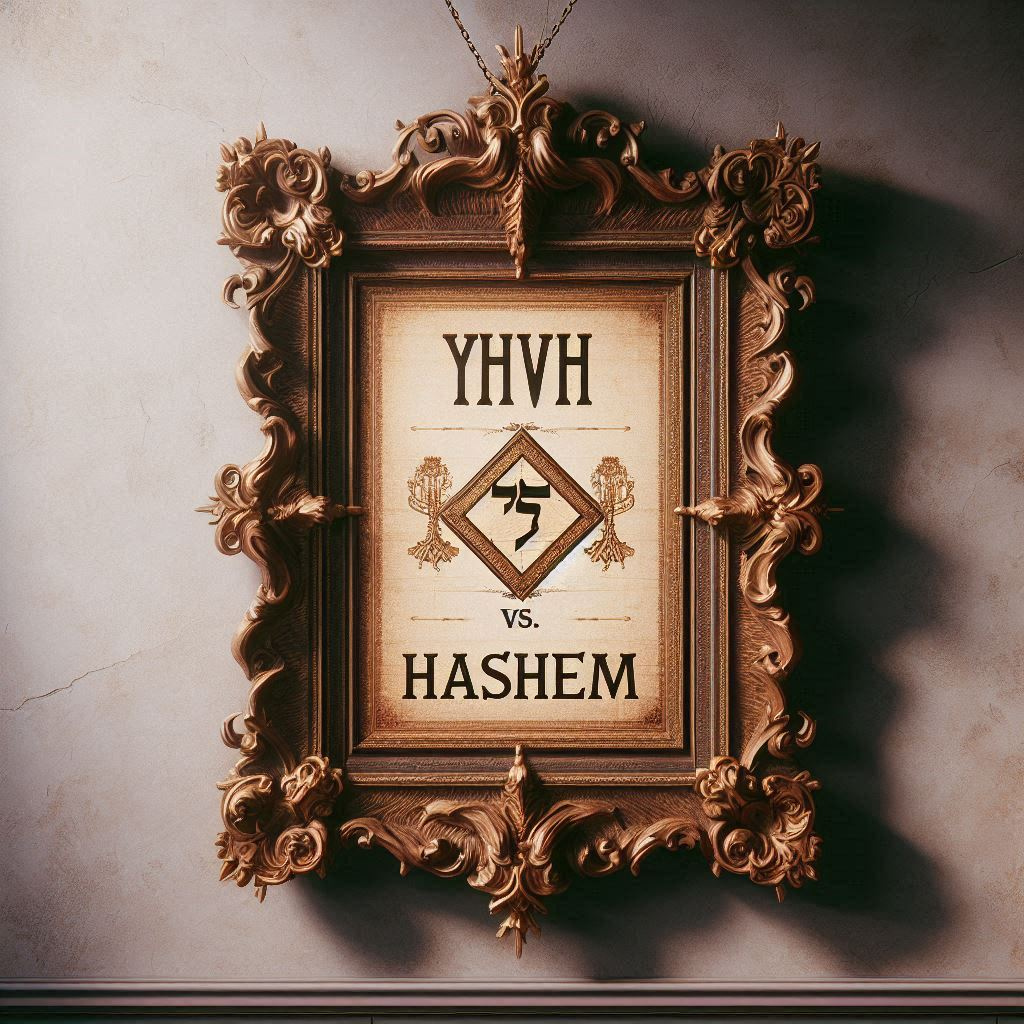The Ineffable Name Controversy: Breaking Traditions and Unveiling Truth
Introduction: In the realm of faith, the Name of Yehovah holds profound significance. However, the tradition of not uttering or writing this sacred name has sparked controversy and debate. This blog post delves into the origins, interpretations, and implications of this practice, shedding light on the true essence of the Ineffable Name.
The Tradition of Writing “G-d”: Many Jewish communities avoid writing the full name of God, opting for “G-d” instead. This practice stems from a passage in Deuteronomy, which commands the Israelites to destroy the names of non-Israelite gods. Rabbinic interpretations extended this to mean that God’s name should not be erased, leading to the tradition of writing “G-d”1.
Rabbinic Interpretations and Misinterpretations: Rabbinic authorities, such as Rashi, interpreted the prohibition against erasing God’s name as a reason to avoid writing it altogether. This led to the practice of storing or burying Jewish literature containing the name “God” once it fell into disrepair2. However, this interpretation has been contested, as the original scriptural intent was to prevent the worship of Yehovah in the manner of pagan gods3.
The True Name of Yehovah: The Father revealed His eternal and holy name to Moses, declaring it to be remembered for all generations (Exodus 3:15). Despite this, Rabbinic authorities replaced the name Yehovah with titles and descriptors like “Adonai” and “Elohim,” effectively nullifying the Torah’s instructions regarding the use of God’s name4.
The Impact of Rabbinic Regulations: By enacting regulations against using God’s name, Rabbinic authorities transgressed Yah’s eternal Torah. This has led to a widespread practice of substituting God’s name with titles, which often have pagan origins5. This practice contradicts the scriptural mandate to declare and magnify Yehovah’s name throughout the earth6.
Conclusion: As Torah-observant disciples, it is our duty to honor and proclaim the true name of Yehovah. By doing so, we fulfill the scriptural command to declare His name to all generations. Let us break free from traditions that obscure the true essence of God’s name and embrace the profound significance of Yehovah.
For those of you who would like to explore this week’s Torah Reading 13, I invite you to read and listen to the discussion entitled “Yehovah: the God Who Sees.” (Yehovah-The God Who Sees-STAR 13)
Thoughts and Reflections on Yom Teruah-The Feast of Tabernacles 2023
This is a special TMTO post that I pray will encourage, and maybe inform you, as it relates to the imminent advent of Yom Teruah, or the Day of the Blowing of Trumpets. As you may, or may not know, we are on the very cusp of receiving this Moedim, this...
Upholding the Utter Holiness of God-My Thoughts and Reflections on Torah Reading 100
Greetings and Shabbat Shalom. It is my hope, trust, and prayer that this posting finds you, your families, and your fellowships well and blessed on this warm but blessed Sabbath in the DFW. A Short Passage with a Big Message This 100th parashah of our three-year...
God’s Priestly Armies Then and Now: Thoughts and Reflections on Torah Portion 99
Greetings on this warm Shabbat in Maryland. May this post find you, your families, and your fellowships well and bless. These are my thoughts and reflections on the 99th reading of the 3-year Torah Reading cycle. I've entitled this post "God's Priestly Army Then and...
The Power From Within-Thoughts and Reflections on Parashah 98
Greetings to you on yet another exceptionally warm Sabbath in the DFW. May this day of rest find you, your families, and your fellowships well and blessed. These are my thoughts and reflections on the 98th Torah or Parashah Reading of our 3-year reading cycle. It is...
God Brings His Children Unto Himself: My Thoughts and Reflections of Torah Reading 97
Greetings on this warm summer Shabbat in the DFW. These are my thoughts and reflections on the 97th reading of our three-year Torah Reading Cycle. It is contained within Numbers 1:1-2:13; the Haftarah in Ezekiel 47:13-23; and the Apostolic in Luke 15:1-7....
The Realities of the Messianic’s Liberty in Messiah–Thoughts and Reflections of Torah Reading 95
These are my thoughts and reflections on the 95th parashah of the 3-year Torah Reading cycle. It is contained in Leviticus/Vayiqra 25:39-26:2. I’ve entitled this discussion: The Realities of the Messianic's Liberty in Messiah--Thoughts and Reflections on Torah Reading...
TMTO Ministry Update
Greetings I'm back! Well, not quite. But almost. History of Ministry QFC (2012) Blog (2012) Podcast (2014-11/2022) YouTube (2018-11/2022) QFC Affiliates with Feastkeepers (New York) and First Century COG (Baltimore) (2019-2021) Why we ended the podcast...
Shabbat Chazon–Our Hope for Salvation and Redemption–Thoughts and Reflections on Isaiah 1:1-27
Shabbat Shalom Saints of the Most High on this balmy, but sublime Sabbath in the DFW. I'm Rod Thomas. Hoping, trusting, and praying that this teaching finds you well and blessed. As this teaching is being recorded and posted, 7/22/23, the 4th day of our 5th biblical...
God’s Requirements for Holiness in Worship–Thoughts and Reflections of Torah Reading 92
Greetings, Saints of the Most High, on this sizzling but beautiful Sabbath in the DFW. These are my thoughts and reflections on this week's Torah Reading, which happens to be the 92nd reading of our 3-year Torah Reading cycle. Given its contents, I've entitled...
Becoming and Existing as Priests of God-Thoughts and Reflections on Torah Reading 91
Greetings beloved of Yehovah on this steamy, but beautiful Sabbath here in the DFW. This week's Torah Reading is the 91st Reading of the 3-year reading cycle. It is contained in the 21st Chapter of the Book of Leviticus and entails the exclusive and exceeding...

